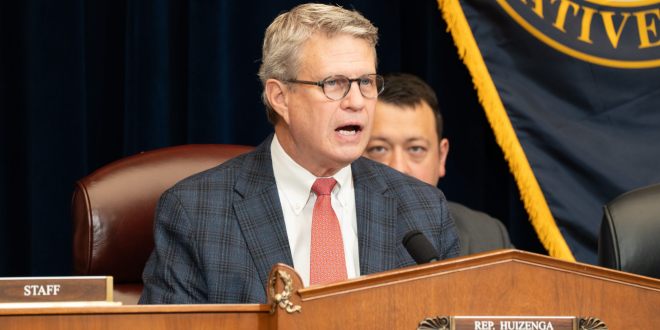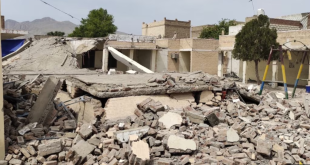KABUL – In a sharply worded warning, U.S. Congressman Bill Huizenga declared that Afghanistan has reemerged as a global hub for terrorist activity, blaming the Taliban regime for failing to curb extremist groups operating with increasing freedom inside the country. Speaking during a House Foreign Affairs Subcommittee hearing, Huizenga said the 2021 U.S. withdrawal created a “power vacuum now filled by internationally linked terror groups,” pointing directly to ISIS-Khorasan, Tehrik-e Taliban Pakistan (TTP), and other factions.
“Afghanistan is once again a launchpad for terrorist operations,” Huizenga said, accusing the Taliban of providing sanctuary, whether deliberately or through negligence. He cited the 2021 Kabul airport bombing, the resurgence of ISIS-K recruitment networks, and a spike in cross-border attacks in Pakistan as signs that extremist factions are gaining strength and mobility under Taliban control.
U.S. intelligence, he added, now estimates that over 20 terrorist organizations are active within Afghanistan’s borders — many with regional or global reach.
The Taliban government vehemently rejected the claim. Spokesperson Zabihullah Mujahid responded on X (formerly Twitter), stating: “We strongly reject the claim made by the US House of Representatives suggesting that foreign groups are present in Afghanistan or that any threat emanates from its territory.” He insisted the Taliban’s security forces maintain full control and do not allow foreign fighters to operate.
However, international observers and regional intelligence reports suggest otherwise. Afghanistan-based groups — particularly ISIS-K, which includes foreign fighters — are believed to be planning operations abroad. The Pakistani Taliban (TTP), meanwhile, continues to mount deadly attacks across the Afghan-Pakistani border, most recently the June 28 suicide bombing in North Waziristan that killed 13 Pakistani soldiers.
Analysts warn the deteriorating security landscape is not only destabilizing the region but also threatening global security if unchecked. The Afghanistan International channel, citing defense experts, reported that the Taliban’s failure to restrain militants could soon force a reevaluation of the group’s already fragile international standing.
The congressional hearing closed with a bipartisan call for renewed counterterrorism cooperation, regional intelligence sharing, and increased surveillance of Afghan-based threats.
 Afghanistan Times
Afghanistan Times




